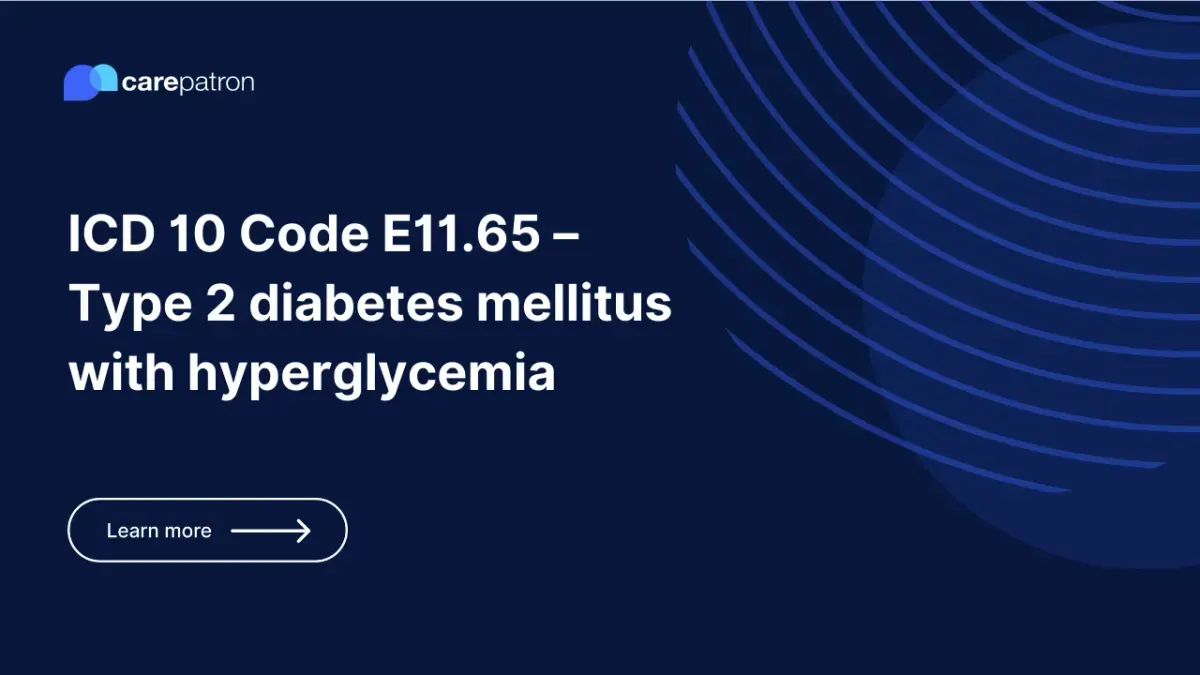
E11.65 – Type 2 diabetes mellitus with hyperglycemia
Learn what the ICD-10-CM code E11.65 entails, from its clinical information to related ICD-10 codes by reading this short guide.
Use Code
Commonly asked questions
Yes, this ICD-10 code is billable.
It’s best to use this code once the patient is confirmed to have Type 2 Diabetes and they are hyperglycemic.
Insulin, metformin, GLP-1 receptor agonists, SGLT2 inhibitors, proper weight loss, diet adjustments. If the hyperglycemia is severe, then fluid replacement, electrolyte replacement, and insulin therapy will be part of the treatment.
EHR and practice management software
Get started for free
*No credit card required
Free
$0/usd
Unlimited clients
Telehealth
1GB of storage
Client portal text
Automated billing and online payments
